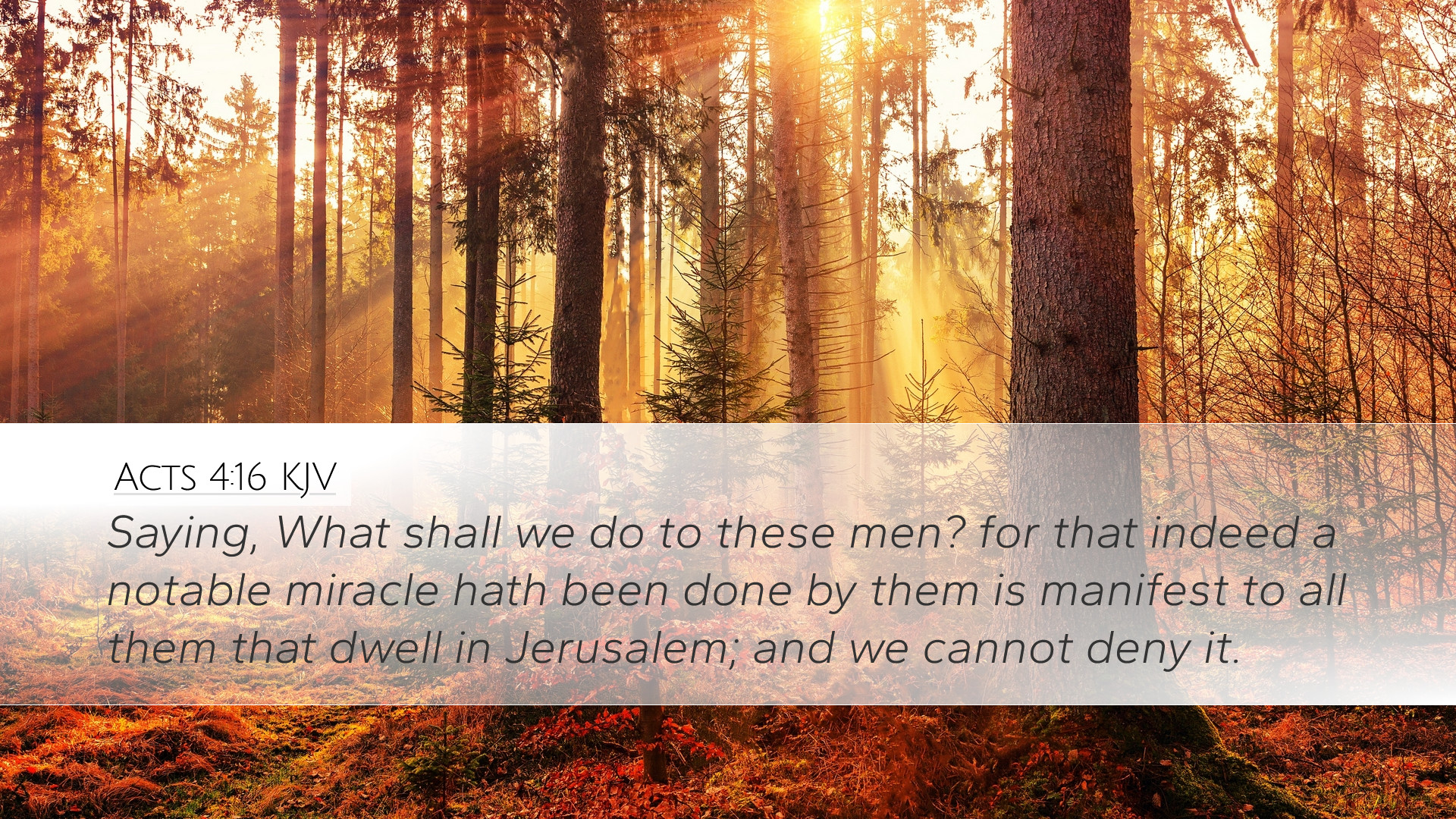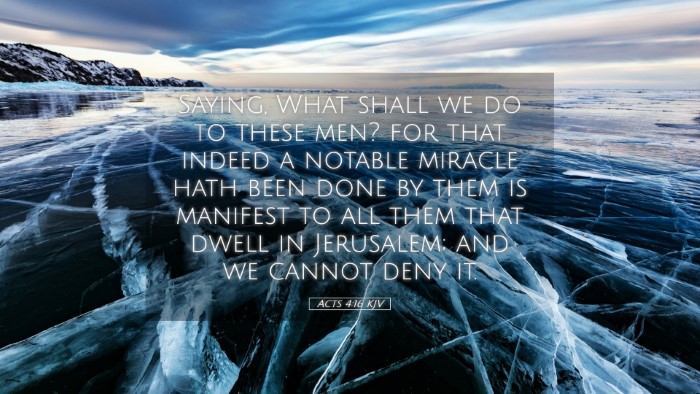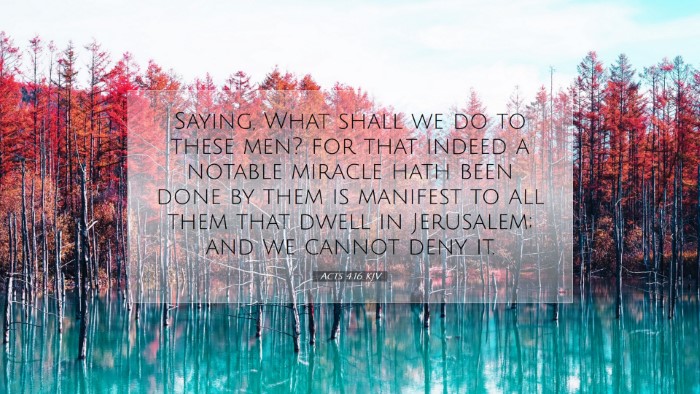Commentary on Acts 4:16
Bible Verse: "Saying, What shall we do to these men? For that a notable miracle hath been done by them is manifest to all them that dwell in Jerusalem; and we cannot deny it."
Introduction
The verse under consideration arises within the context of the early church's boldness in the face of opposition. The healing of the lame man in Acts 3 had drawn significant attention, leading the Sanhedrin to question Peter and John. Acts 4:16 captures the deliberation of these Jewish leaders as they grapple with the undeniable miracle performed by the apostles.
Contextual Analysis
In Acts 4, Peter and John find themselves in front of the rulers, elders, and scribes after healing the crippled man at the Beautiful Gate (Acts 3:1-10). The man’s miraculous recovery is irrefutable, which sets the stage for the Sanhedrin’s dilemma. As Albert Barnes notes, the miracle was "not a private affair" but "manifest to all." The public nature of the miracle both validates the apostles' ministry and deepens the conflict with the Jewish authorities.
The Question of the Sanhedrin
- Inquisition: The phrase, "What shall we do to these men?" reveals a sense of panic among the Sanhedrin. They are troubled not by the miracle itself, which they cannot deny, but by its implications for their authority and control.
- Recognition of the Miracle: The leaders’ acknowledgment of a "notable miracle" points to the transformative power of God at work in the apostles. This mirrors Matthew Henry's view that signs and wonders affirm the gospel message, validating the ministry of the apostles.
Theological Implications
The miracle serves as a powerful testimony to the resurrection of Christ. This experience illustrates the kind of transformative power that faith in Jesus brings to believers. Acts 4:16 emphasizes not merely the miracle but also the response it provokes. Adam Clarke interprets this as a delineation between faith produced by miraculous signs versus a faith founded upon the word of God. The miracle stirs curiosity and apprehension among the authorities, leading them to deliberate their response.
Responses from the Authorities
The deliberation of the Sanhedrin stems from the fact that they cannot "deny" the miracle. This denotes an acknowledgment of God's hand at work, even from those who oppose the believers. As noted by Barnes, this illustrates the "irresistible power" of divine work. The ensuing discussion reveals the tensions between worldly authority and divine sovereignty.
Pastoral Insight
For pastors, Acts 4:16 serves as a stark reminder of the landscape of faith amid opposition. The early church faced pressures and scrutiny, yet they stood firm in their testimony. This passage urges a proactive, courageous response when believers face challenges to their faith. It emphasizes the importance of recognizing and acknowledging God's works in our lives, often seen through the miraculous and the unexpected.
Applications for Students and Theologians
- Miracles in Contemporary Context: The understanding of miracles today can correlate with how God manifests His power through believers. Students should reflect on the impact of divine interventions in their own lives and ministries.
- Authority and Accountability: The response of the Sanhedrin invites theological exploration into the tension between human authority and divine activity. This can lead to discussions about accountability to God’s works in today’s ecclesiastical structures.
Conclusion
Acts 4:16 provides rich insight into the early church's dynamics, illustrating the struggle between acknowledging divine works and maintaining control. It challenges believers today to recognize the profound effects of God at work, inspiring faith, resilience, and boldness when confronting skepticism and opposition.
In sum, this verse encapsulates the essence of early Christian witness—a testimony marked by undeniable power, significant danger, and extraordinary faith.


